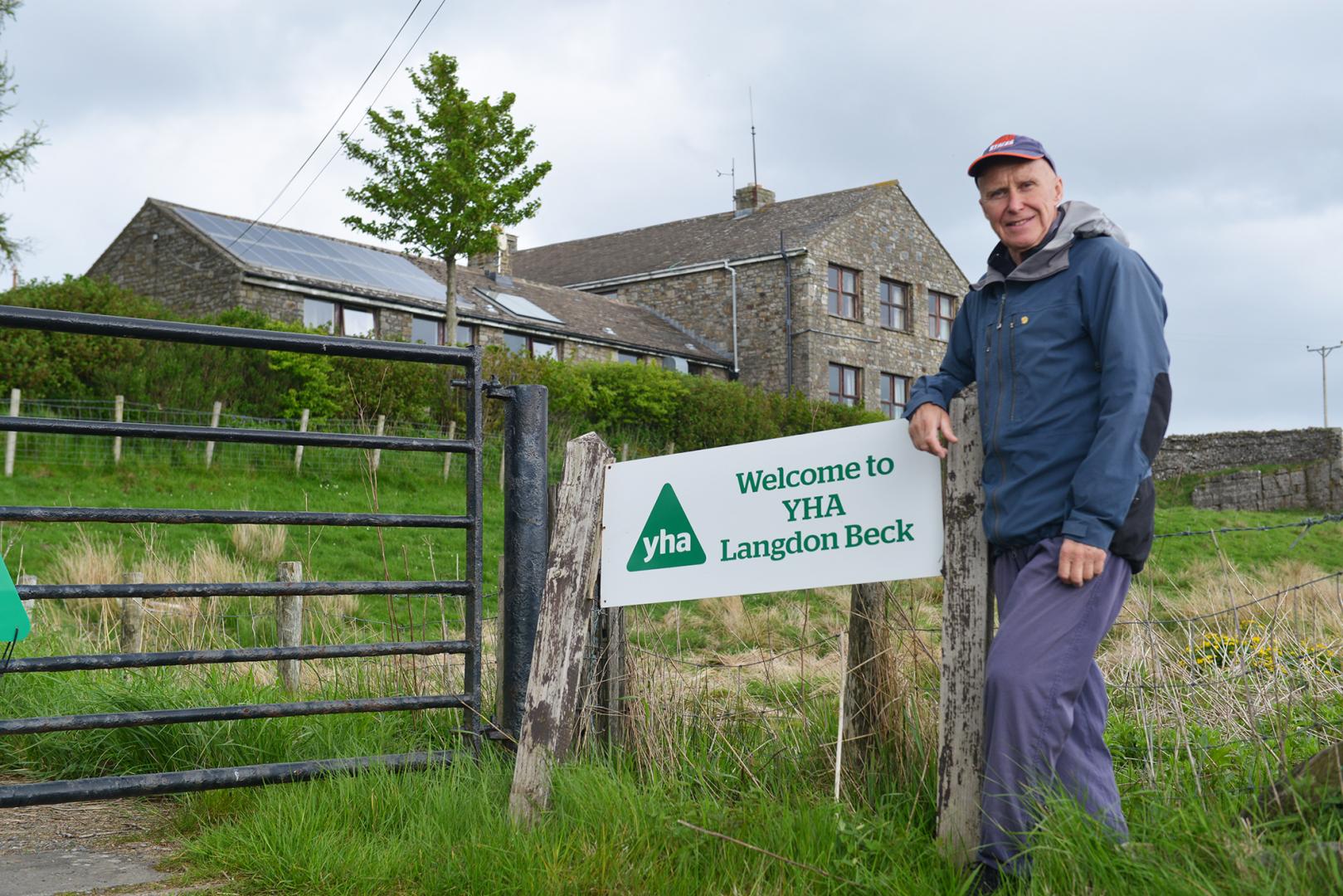BRITAIN’S top mountaineer Alan Hinkes is on a mission to bring back people to Langdon Beck Hostel as it recovers from Covid-19 lockdowns.
Mr Hinkes, who gained acclaim for being the first British climber to reach the summit of all 14 of the world’s mountains of over 8,000 metres, is an ambassador for the Youth Hostel Association (YHA), which operates the upper dale facility.
The hostel enjoyed about 3,000 overnight stays each year prior to the pandemic and some minor renovations are planned as part of a bid attract more people.
Langdon Beck has had a hostel since soon after the YHA was formed as a charity in the early 1930s to address concerns about the welfare of urban populations after the depression.
Mr Hinkes said: “The hostel has been here for 90 years, with the first building dating back to 1938.
“It was destroyed by fire in 1958 and work began on the present building in 1962 and it was opened in May 1965. It was constructed by mainly volunteer labourers.”
At the time it was billed as “rising from the ashes” and a cast iron sign for Langdon Beck Hostel features a phoenix.
The mountain climber added: “Originally you had to arrive at a YHA by shank’s pony – ie by foot or by bike – you weren’t allowed to drive to them.
“It was always dormitory accommodation then and you had to do chores, like wash up or clean and things like that. Now you don’t have to do chores.
“There is still dormitory accommodation, but most YHAs are going to have private bedrooms.”
The Langdon Beck facility boasts a number of rooms for as few as two people or as many as ten.
Mr Hinkes said: “The good thing about the hostel is you can do your own cooking as well because there is a communal kitchen, which is spotless.”
The accommodation also includes a small laundry and drying room, as well as private showers and toilets.
YHA’s north east operations manager Chris Edis said that prior to the pandemic the facility was popular with Pennine Way walkers, hill walkers, school groups and people simply wanting a bit of tranquillity.
Also attracted to the area, he added, are people interested in the geology and its flora and fauna, particularly the unique birdlife and alpine plants.
However, during the pandemic, when restrictions allowed, only small groups were able to use the facility.
Mr Edis said: “We are doing a bit of a project to bring it back to life. We’ve brought in a new manager and are slowly redecorating it a bit.”
Of the YHA’s role in the Pennine Way, Mr Hinkes said: “In the 30s when they opened these hostels and even right up through to the 70s, if not later, you could do the whole of the Pennine Way staying in youth hostels.
“Now you can’t, obviously, because some hostels have closed.
“You get a lot of Pennine Way walkers coming here because it is not much of a detour from it, and then you get them going to the next hostel, which is Dufton, and after Dufton they cut round to Alston, which has a YHA as well.”
One of several people who booked into Langdon Beck Hostel last week was software engineer Beth Allchurch, from Mumbles, in Wales, who was on a 19-day hike of the famous walking route.
She descrbied the facility as “great and reasonably priced” and added that she was lucky to get a room at short notice.
Of her walk, Ms Allchurch said: “It has been really good. It has been a bit challenging but the scenery has been amazing. I like the outside and I thought it would be nice to spend three weeks doing this.”
Following on from her overnight stay, she walked to Dufton and stayed at the YHA there.
Slightly further afield there are YHA facilities at Ninebanks, in North Tynedale, and Grinton Lodge, in Swaledale.
However, Langdon Beck is the only YHA accommodation in County Durham, Mr Hinkes said.
For more information about YHA and it’s Langdon Beck facility visit yha.org,uk.






